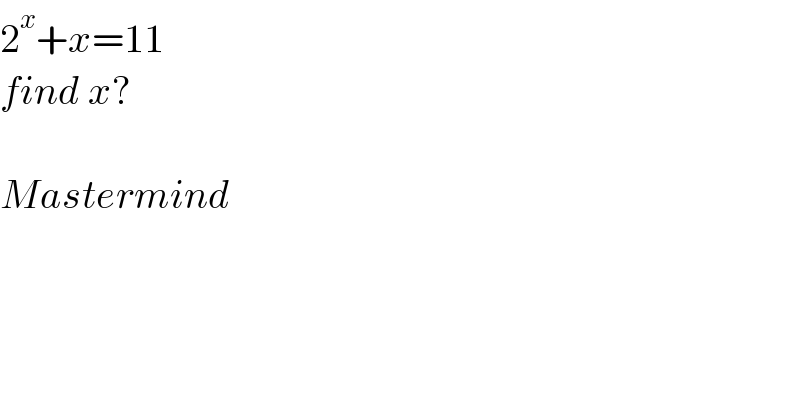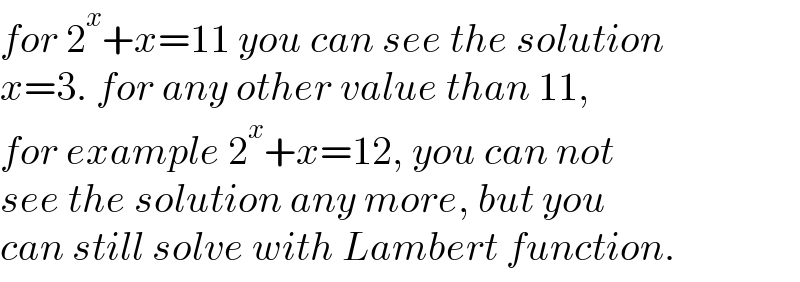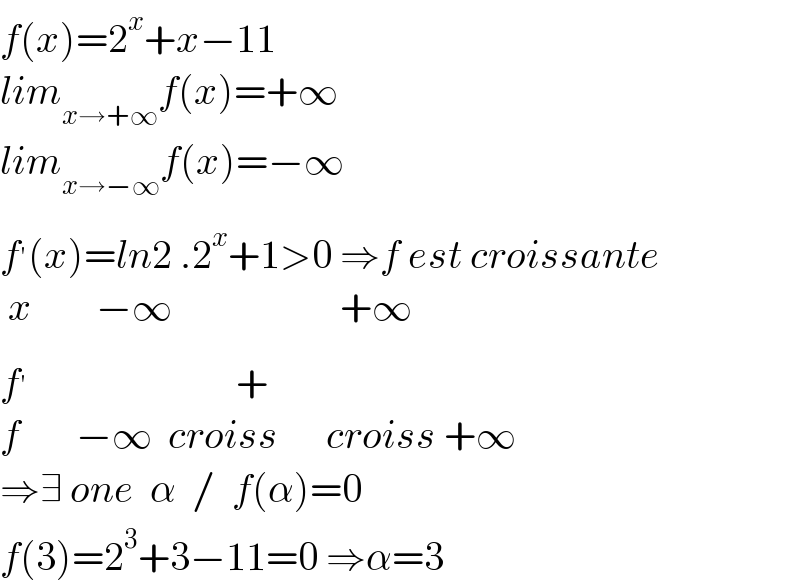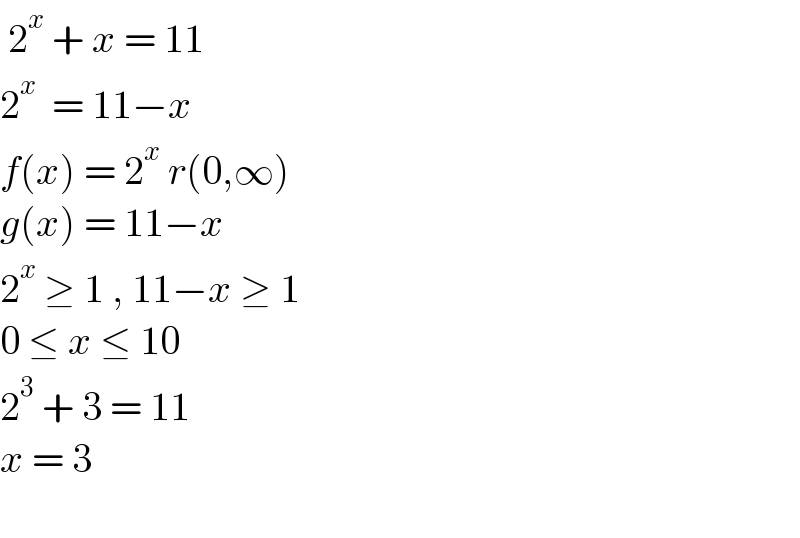
Question and Answers Forum
Question Number 169738 by Mastermind last updated on 07/May/22

Commented by mr W last updated on 08/May/22

Answered by Mathspace last updated on 07/May/22

Answered by Joshua24 last updated on 07/May/22

Answered by mr W last updated on 07/May/22
![2^x +x=12 2^x =12−x 2^(12) ×2^(x−12) =(12−x) 2^(12) ×e^((x−12)ln 2) =(12−x) 2^(12) =(12−x)e^((12−x)ln 2) 2^(12) ×ln 2=[(12−x)ln 2]e^((12−x)ln 2) (12−x)ln 2=W(2^(12) ×ln 2) ⇒x=12−((W(2^(12) ×ln 2))/(ln 2)) ≈12−((6.13692882)/(ln 2))=3.146283](Q169741.png)
